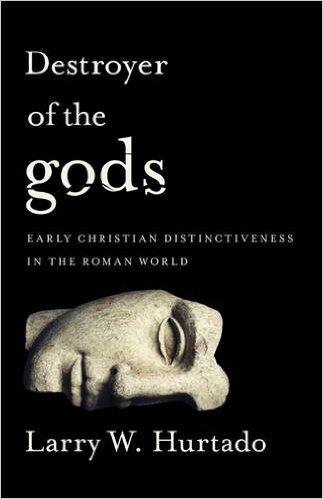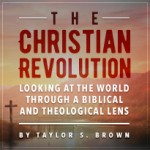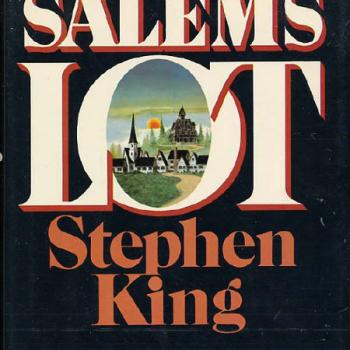If you can only read one book about the history of early Christianity this year (or this summer, whichever comes first), I would highly recommend Larry Hurtado’s recent monograph, Destroyer of the gods: Early Christian Distinctiveness in the Roman World (Baylor University Press, 2016). It was my top book in the New Testament/Early Christianity category in my “Top Books of 2016” list that I composed near the end of last year (it was very closely followed by John Barclay’s magisterial tome, Paul and the Gift; if I were to re-write the article today, I would make it an even tie between the two books, but I digress). I even wrote a review of it over at Seedbed.com.

The folks over at First Things have just put up a fairly thorough review of the book by Joshua Kinlaw. It does a good job of both summarizing several of Hurtado’s key points in the book, and critically engaging with his work as to where it could be expanded further. One of my favorite sections from the review (which summarizes one of my favorite sections from the book), deals with just how revolutionary the Apostle Paul (representative of the earliest strata of Christian belief and practice) was in the ancient Greco-Roman world:
The ancient ideal of a “peace among the gods” lies behind Pliny’s worries, and this ideal also motivates both the official persecutions and the popular criticism of Christianity. Peace (and prosperity) among men depended upon the pax deorum, which correct sacrifice and rite could encourage, if not ensure. Historically, it has led to an orthopraxy-versus-orthodoxy distinction that, if logical, is decidedly out of favor. Hurtado’s accomplishment here is to transcend this academic chestnut by keeping his focus on a final, most significant distinctive: Christians wanted to change the world. The ultimate goal of the pax deorum, by contrast, was to maintain the status quo. However disappointed moderns may be in the lack of outright rebellion in St. Paul—whose Corinthian letters Hurtado reads closely and fruitfully—we must understand how countercultural he was. The significance of “idolatry” to the New Testament letters is one example: Paul gives the Greek word a pejorative sense that it had never had outside of Judaism. His prescription of agape, moreover, was simultaneously “preposterous” and “winsome” in its first-century context.
The review is very well written and reminded me of just how good Hurtado’s book is. If you are in need of some summer reading, I’d recommend reading the First Things book review. Then, I would highly recommend reading Hurtado’s book itself.















